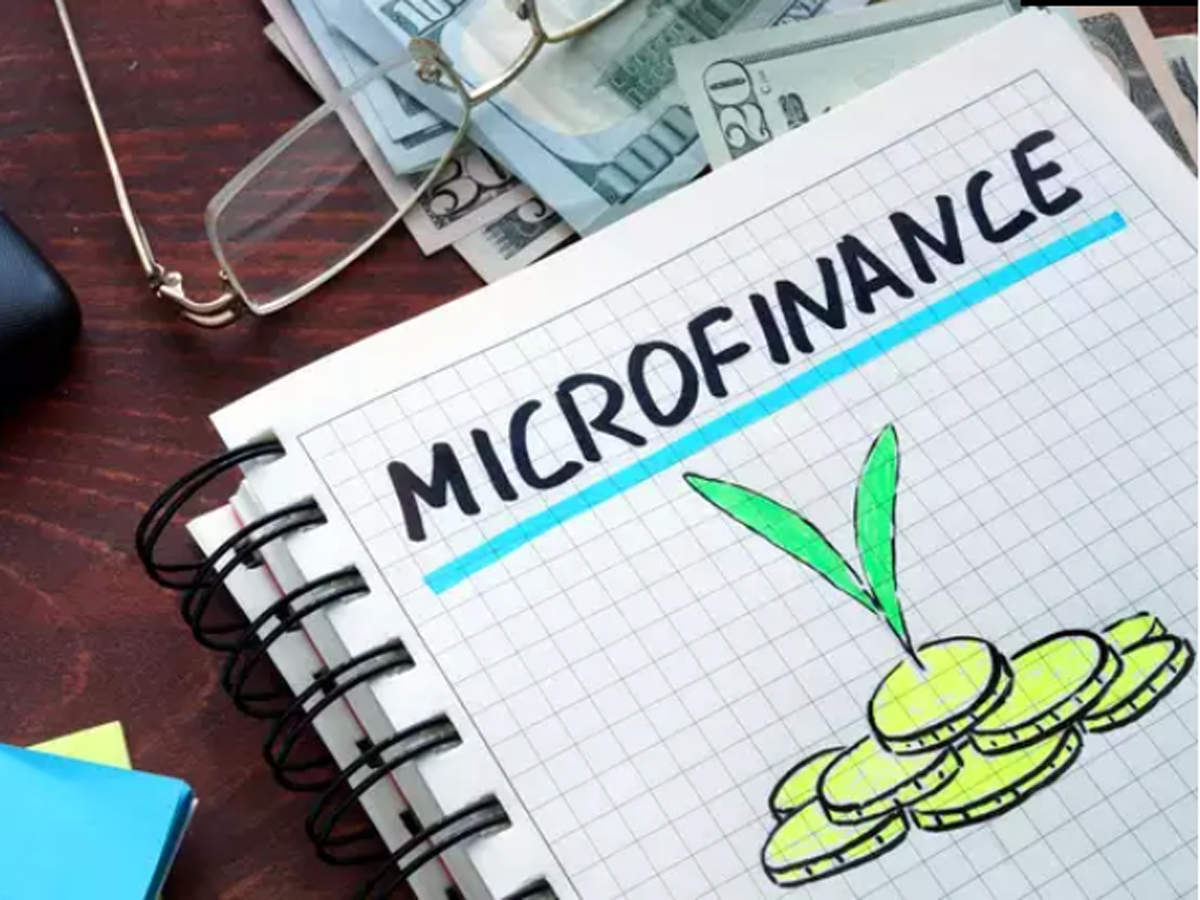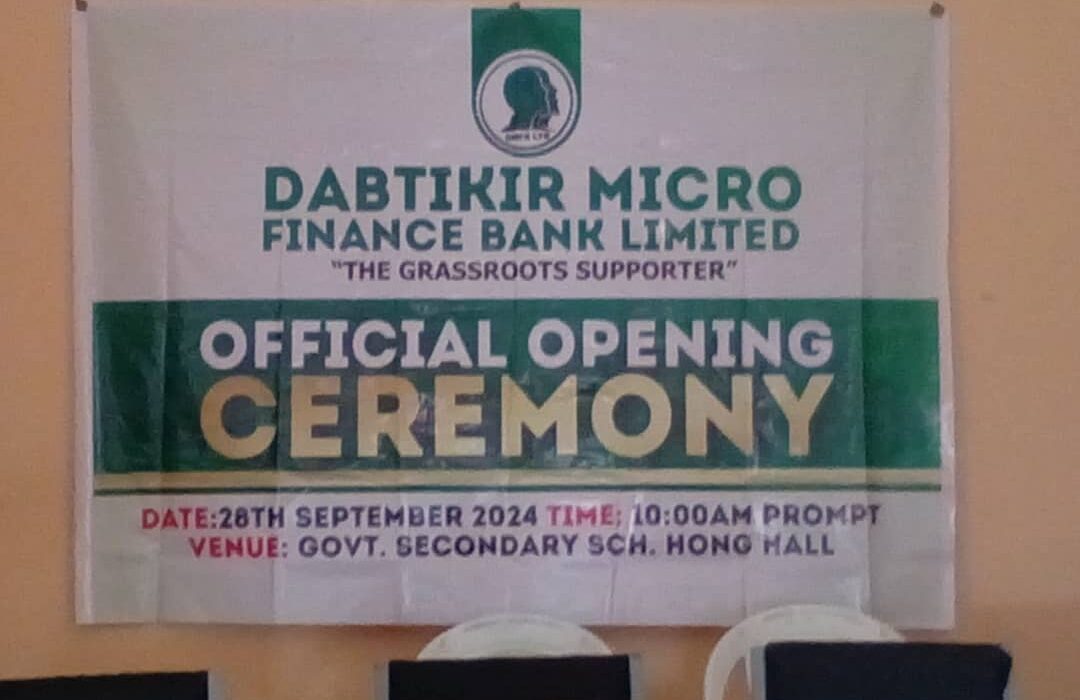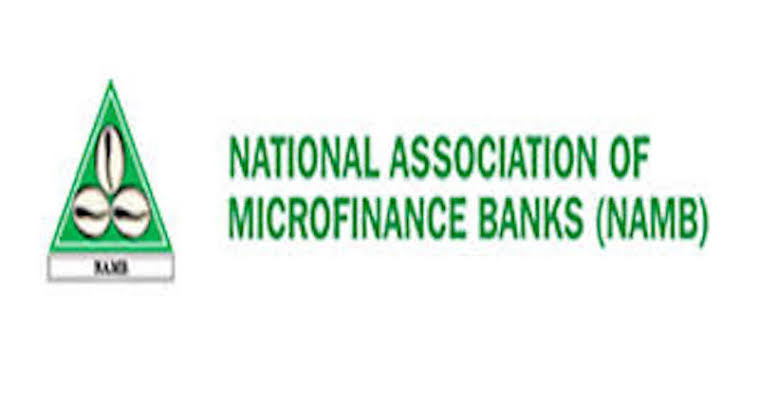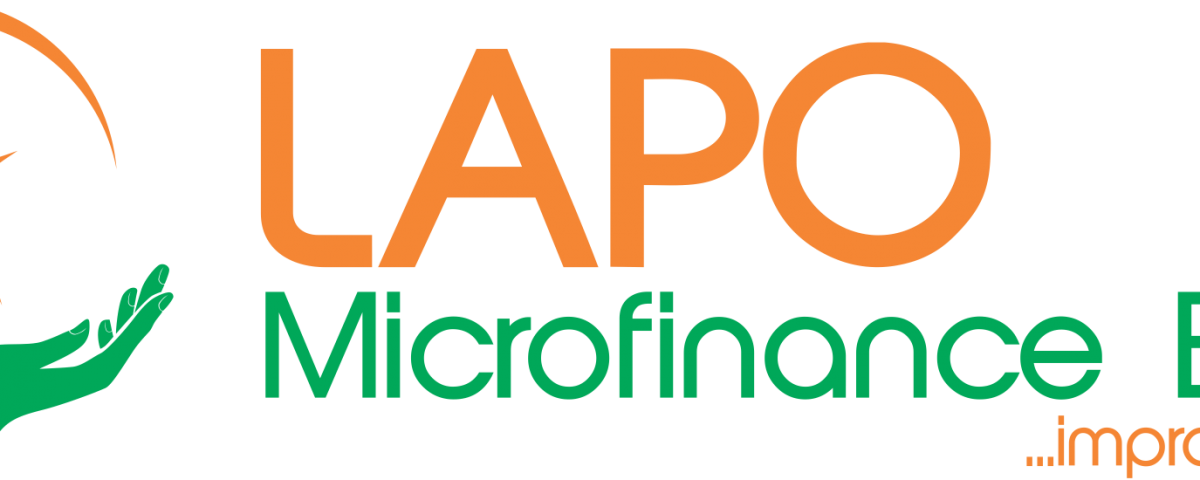Banking
Consolidation to Reduce Microfinance Banks in Nigeria by 44%—Agusto

By Modupe Gbadeyanka
There are strong indications that the number of microfinance banks in Nigeria will reduce by 44.4 per cent by the time the recapitalisation exercise of the sector by the Central Bank of Nigeria (CBN) is concluded in April 2022.
This information was contained in a report on the Microfinance Industry in Nigeria released by a foremost research and credit rating agency in the country, Agusto & Co.
A summary of the report made available to Business Post revealed that the over 900 microfinance banks operating in the country may be pruned to around 500 through consolidation activities as well as failures to meet the new requirements.
The apex regulatory agency in the nation’s bank sector, the CBN, is embarking on a two-phased increase in the minimum capital requirements for all categories of microfinance banks to take effect in April 2021 and April 2022.
As a result of this, the number of operators is expected to reduce and Agusto expects the microfinance industry to fare better in 2021 supported by the global roll-out of COVID-19 vaccines, accelerated digital transformation of microfinance banks and businesses in general, a renewed focus on essential sectors and government support for MSME businesses.
“The industry, however, continues to have a high level of susceptibility to macroeconomic challenges as was witnessed in 2020,” the agency said in its outlook for the year.
In the report, the credit rating agency paid attention to the impact of the COVID-19 pandemic on the sector and non-performing loans (NPLs), an assessment of the new capitalisation requirements for microfinance banks, analysis of the financial performance of microfinance banks and a detailed assessment of the major impediments to growth in the industry.
The pandemic and the technology gaps
Many microfinance banks in Nigeria, like in most developing countries with relatively low penetration of e-channels, witnessed a doubling of obligations that were past due for up to 30 days (PAR 30) during the first wave of the pandemic and lockdown restrictions in early 2020.
Despite up to N5 billion spent by the major national and state microfinance banks in Nigeria on the implementation of internet, mobile and USSD banking services, the industry remains heavily reliant on brick-and-mortar branches for the acquisition of customers and disbursement of loans and the collection of notes and coins for repayment. Given the low technological literacy in the country, collections from Micro, Small and Medium-Scale Enterprises (MSMEs) ground to a halt during the six-week lockdown, even in sectors categorised as essential and in regions not otherwise facing restrictions.
The economic environment also did not lend itself to loan disbursements given the sharp decline in business activities while many microfinance banks were caught off guard by the pandemic with few having the infrastructure in place to lend to MSMEs digitally, the report stated.
Microfinance banks rising NPLs
Agusto said the doubling of non-performing loans witnessed by the Nigerian microfinance industry in 2020 was exceptional in the light of the pandemic, thus many operators had to provide some forbearance and also restructure loans for clients with difficulty repaying as restrictions were gradually lifted.
One of the primary strategies adopted by operators in the sector to drive recoveries in 2020 was to promise customers who met all outstanding obligations access to new loans.
Subsequent to the six-week lockdown, many microfinance banks shifted focus to providers of essential goods and services and also existing customers to drive disbursements. The growth in the industry’s loan book was, however, depressed with the portfolio remaining flat as operators adopted a more cautious approach given the heightened credit risk of MSMEs in key sectors such as education, supply of non-essential goods and services, transportation and hospitality.
Agusto expects to see improvements in the microfinance industry in 2021 as the global and domestic economies rebound and operators adjust to the new realities with a 5 per cent growth in the loan book and a 400-basis point drop in the non-performing loan ratio from an average of 12.6 per cent for major operators.
The pandemic has raised the stakes for payment infrastructure
Microfinance banks in Nigeria have been given a loud wake-up call by the COVID-19 pandemic to accelerate investment in digital channels for loan disbursement and collection.
Many operators have since developed web portals for loan applications and are actively exploring the use of payment services such as Remita, Paystack and ultimately mobile money for collections.
The efficacy of such channels in Nigeria may, however, be limited by the low digital literacy of the unbanked, underbanked and low-income target market of the Microfinance Industry. Having a strong physical presence in various geographical locations remains the major driver of success in the microfinance industry in Nigeria.
The largest microfinance banks have branches spread across the country and are easily identifiable to the target market of low-income earners and MSMEs operating in the surrounding area.
Agusto said it believes the future success of digital channels in the microfinance space (critically for collections and consequently disbursements) will be strongly dependent on the adoption of digital payments by low-income earners and MSMEs in everyday purchase and sales transactions. On the contrary, if the underlying economic activities continue to be executed in notes and coins, then the fundamental challenge of converting collections to a digital transaction would remain.
Notwithstanding, the licensing of three payment service banks (PSB) – Hope PSB Limited, 9 PSB Limited and Moneymaster PSB Limited – may offer a possible solution in the mould of Safaricom’s popular M-Pesa platform in Kenya.
Users of the M-Pesa platform in Kenya and other East African countries are able to pay digitally from and to a mobile telephone number for groceries at a market stall, for public transport or for the services of an artisan, for example. This “mobile money” can be used to settle loan obligations using the same platform, thus facilitating digital collections.
Banking
All Set for Second HerFidelity Apprenticeship Programme

By Modupe Gbadeyanka
Registration for the second HerFidelity Apprenticeship Programme (HAP 2.0) organised by Fidelity Bank Plc has commenced.
The Divisional Head of Product Development at Fidelity Bank, Mr Osita Ede, informed newsmen that the initiative was designed to empower women with sustainable entrepreneurship skills.
The lender created the flagship women-empowerment initiative to equip women with practical, income‑generating skills and structured pathways to entrepreneurship.
“HerFidelity Apprenticeship Programme 2.0 reflects our commitment to continuous improvement. Having evaluated feedback from the first edition, we have returned with stronger partnerships and deeper mentorship programmes to ensure that women acquire not just skills, but sustainable economic opportunities,” he said.
“At the heart of the programme is guided, real‑world learning. Participants will undergo intensive apprenticeship training under reputable institutions and industry experts across select fields such as hair styling, shoe making, auto mechatronics, and interior decoration,” Mr Ede added.
He noted that HerFidelity Apprenticeship Programme 2.0 goes beyond skills acquisition by offering participants a wide range of business advisory services. These include business and financial literacy training, mentorship support throughout the apprenticeship journey, access to Fidelity Bank’s women‑focused and SME financial solutions, as well as guidance on business formalisation and growth strategies.
Further emphasising the bank’s vision, Mr Ede said, “By integrating structured mentorship with entrepreneurial development, Fidelity Bank is positioning women not just as trainees, but as future employers, innovators, and economic contributors within their communities. This aligns with our mandate to help individuals grow, businesses thrive, and economies prosper.”
Banking
The Alternative Bank Opens New Branch in Ondo

By Modupe Gbadeyanka
A new branch of The Alternative Bank (AltBank) has been opened in Ondo State as part of the expansion drive of the financial institution.
A statement from the company disclosed that the new branch would support export-oriented agribusinesses through Letters of Credit and commodity-backed trade finance, ensuring that local producers can scale beyond state borders.
For SMEs, the bank is introducing robust payment rails, asset financing for equipment and inventory, and supply chain-backed facilities that strengthen working capital without trapping businesses in interest-based debt cycles.
The Governor of Ondo State, Mr Lucky Aiyedatiwa, represented by his Chief of
Staff, Mr Olusegun Omojuwa, at the commissioning of the branch, underscored the importance of financial institutions in economic development.
“The pivotal role of financial institutions to economic growth and development of any economy cannot be overemphasised. It provides access to capital, supporting small and medium-scale enterprises and encouraging savings.
“Therefore, I have no doubt in my mind that the presence of The Alternative Bank in Ondo State will deepen financial services, create employment opportunities and stimulate economic activities across various sectors,” he said.
In her remarks, the Executive Director for Commercial and Institutional Banking (Lagos and South West) at The Alternative Bank, Mrs Korede Demola-Adeniyi, commended the state government’s leadership and outlined the lender’s long-term vision for Ondo State.
“As Ondo State steps into its next fifty years, and into the future anchored on the sustainable development championed during the recent anniversary celebrations, The Alternative Bank is here to be the financial engine for that vision. We didn’t come to Akure to hang banners. We came to fund work, farms, shops, and factories.”
With Ondo State’s economy anchored largely on agriculture, particularly cocoa production, poultry farming, and other cash crops, alongside a growing SME and trade ecosystem, AltBank is deploying sector-specific financing solutions tailored to these strengths.
For cocoa aggregators, processors and poultry operators, the bank will provide production financing, facility expansion support, machinery lease structures, and structured trade facilities under its joint venture and cost-plus financing models, with transaction cycles of up to 180 days for commodity trades and longer-term structured asset financing for equipment and infrastructure.
The organisation is a notable national non-interest bank with a physical network now surpassing 170 locations, deploying capital to solve real-world challenges through initiatives such as the Mata Zalla project, which saw to the training of hundreds of women as electric tricycle drivers and mechanics.
Banking
Recapitalisation: 20 Nigerian Banks Now Fully Compliant—Cardoso

By Adedapo Adesanya
The Governor of the Central Bank of Nigeria (CBN), Mr Yemi Cardoso, announced on Tuesday that the country’s banking sector is making strong progress in the recapitalisation drive, with 20 banks now fully compliant.
Mr Cardoso disclosed this during a press conference at the first Monetary Policy Committee (MPC) meeting of 2026, where he also highlighted positive developments in the nation’s foreign reserves.
On March 28, 2024, the apex bank announced an increase in the minimum capital requirements for commercial banks with international licences to N500 billion.
National and regional financial institutions’ capital bases were pegged at N200 billion and N50 billion, respectively.
Also, CBN raised the merchant bank minimum capital requirement to N50 billion for national licence holders.
The banking regulator said the new capital base for national and regional non-interest banks is N20 billion and N10 billion, respectively.
To meet the minimum capital requirements, CBN advised banks to consider the injection of “fresh equity capital through private placements, rights issue and/or offer for subscription”.
Following the development, several banks announced plans to raise funds through share and bond issuances.
In January, Zenith Bank said it had raised N350.46 billion through rights issue and public offer to meet the CBN minimum capital requirement.
Guaranty Trust Holding Company Plc (GTCO), on July 4, said it had successfully priced its fully marketed offering on the London Stock Exchange (LSE).
In September, the CBN governor said 14 banks fully met their recapitalisation requirements — up from eight banks in July.
With one month to the central bank’s March 31, 2026, recapitalisation deadline, 13 Nigerian lenders are yet to cross the finish line.
Additionally, the governor noted that 33 banks have raised funds as part of the ongoing recapitalisation exercise, signalling robust capital mobilisation across the sector.
He stated that gross foreign reserves have climbed to a 13-year high of $50.4 billion as of mid-February 2026.
-

 Feature/OPED6 years ago
Feature/OPED6 years agoDavos was Different this year
-
Travel/Tourism10 years ago
Lagos Seals Western Lodge Hotel In Ikorodu
-

 Showbiz3 years ago
Showbiz3 years agoEstranged Lover Releases Videos of Empress Njamah Bathing
-

 Banking8 years ago
Banking8 years agoSort Codes of GTBank Branches in Nigeria
-

 Economy3 years ago
Economy3 years agoSubsidy Removal: CNG at N130 Per Litre Cheaper Than Petrol—IPMAN
-

 Banking3 years ago
Banking3 years agoSort Codes of UBA Branches in Nigeria
-

 Banking3 years ago
Banking3 years agoFirst Bank Announces Planned Downtime
-

 Sports3 years ago
Sports3 years agoHighest Paid Nigerian Footballer – How Much Do Nigerian Footballers Earn
















